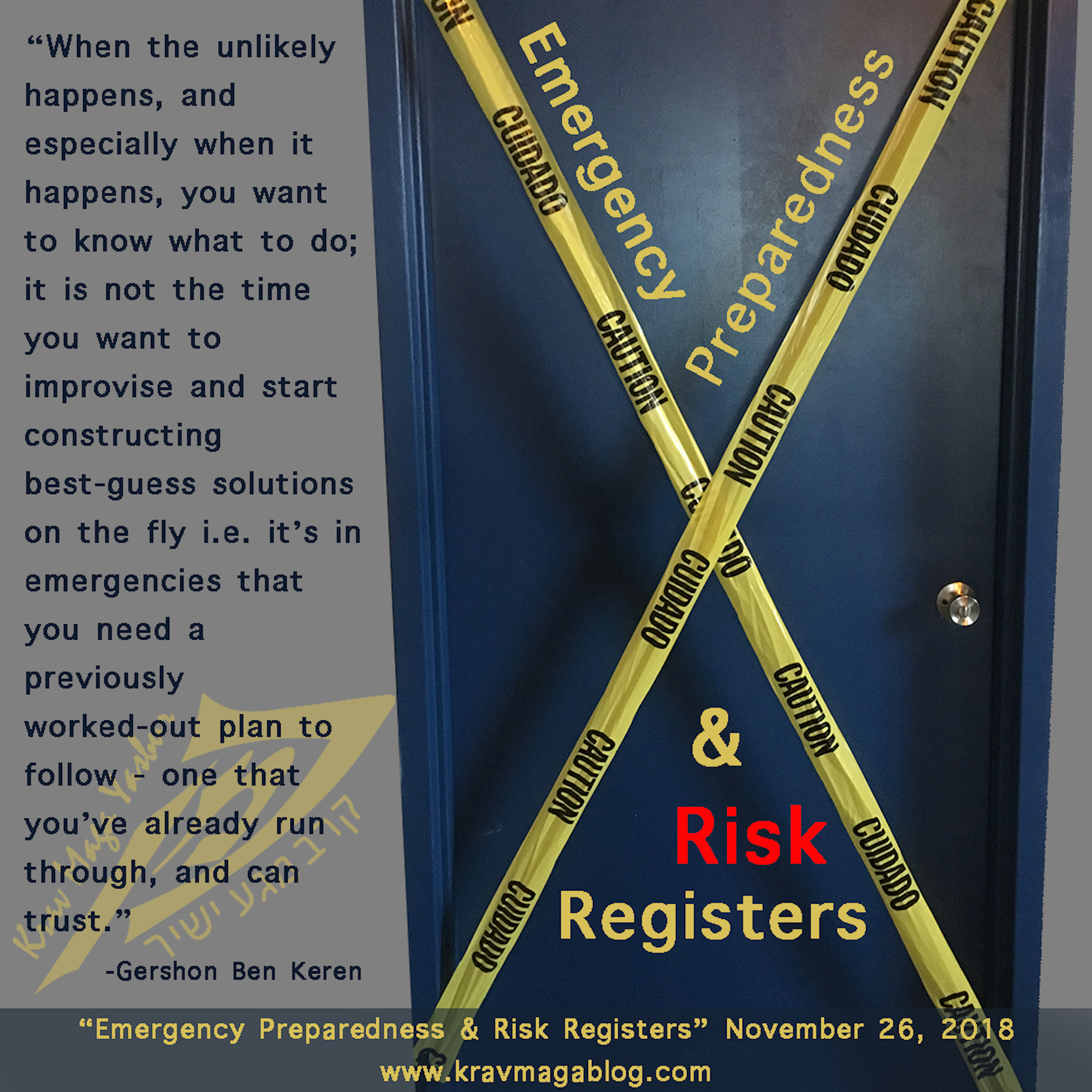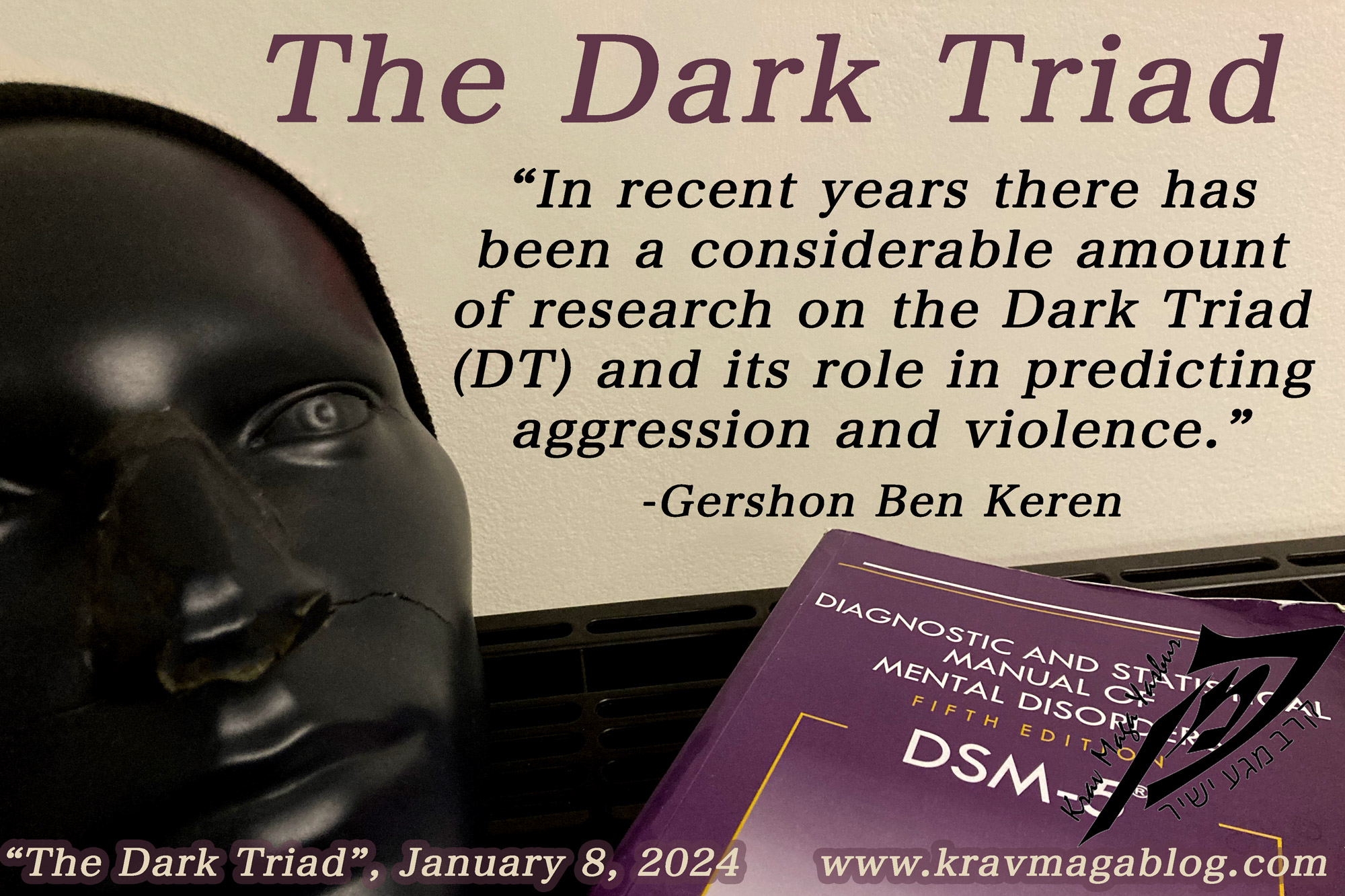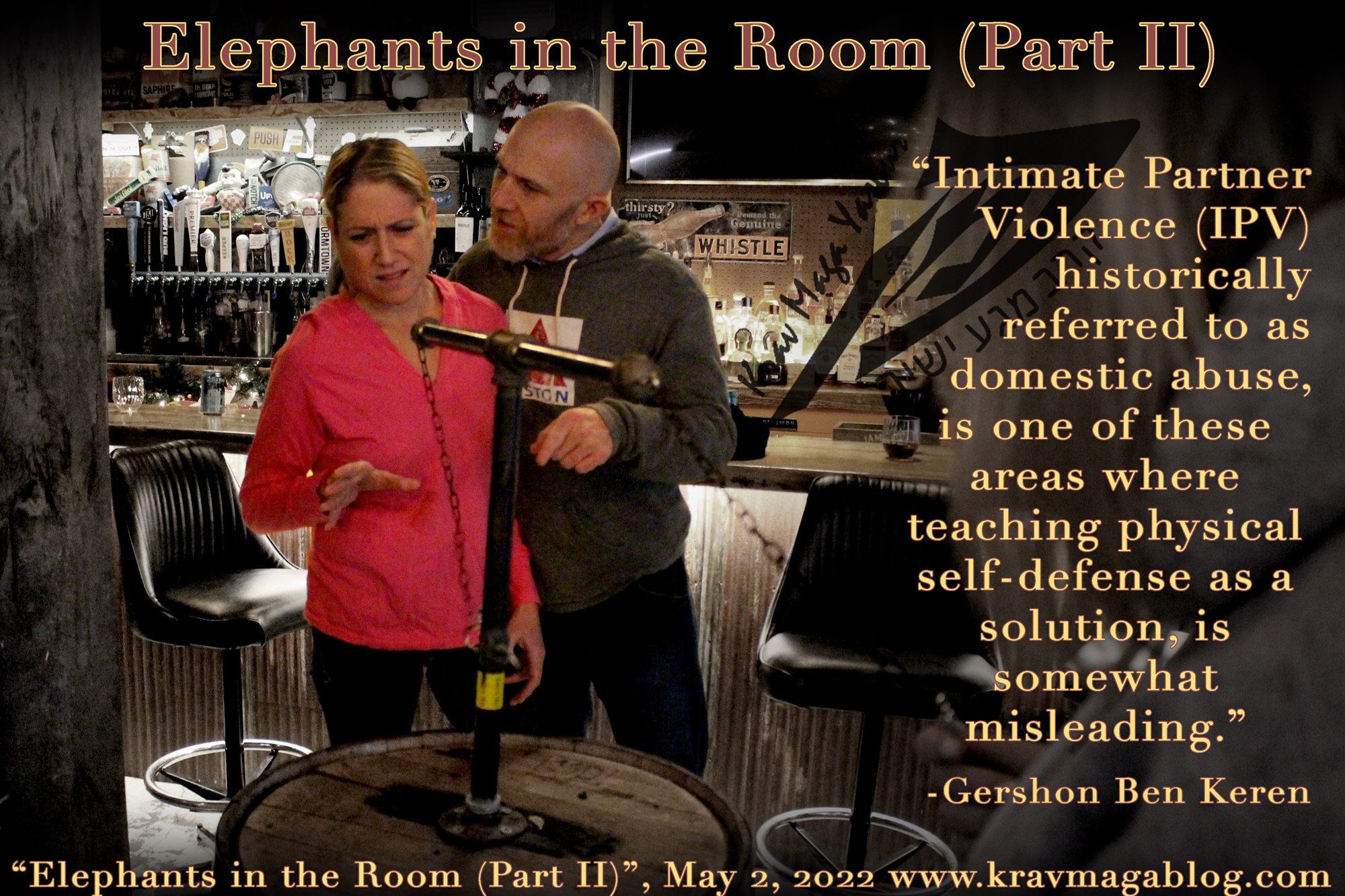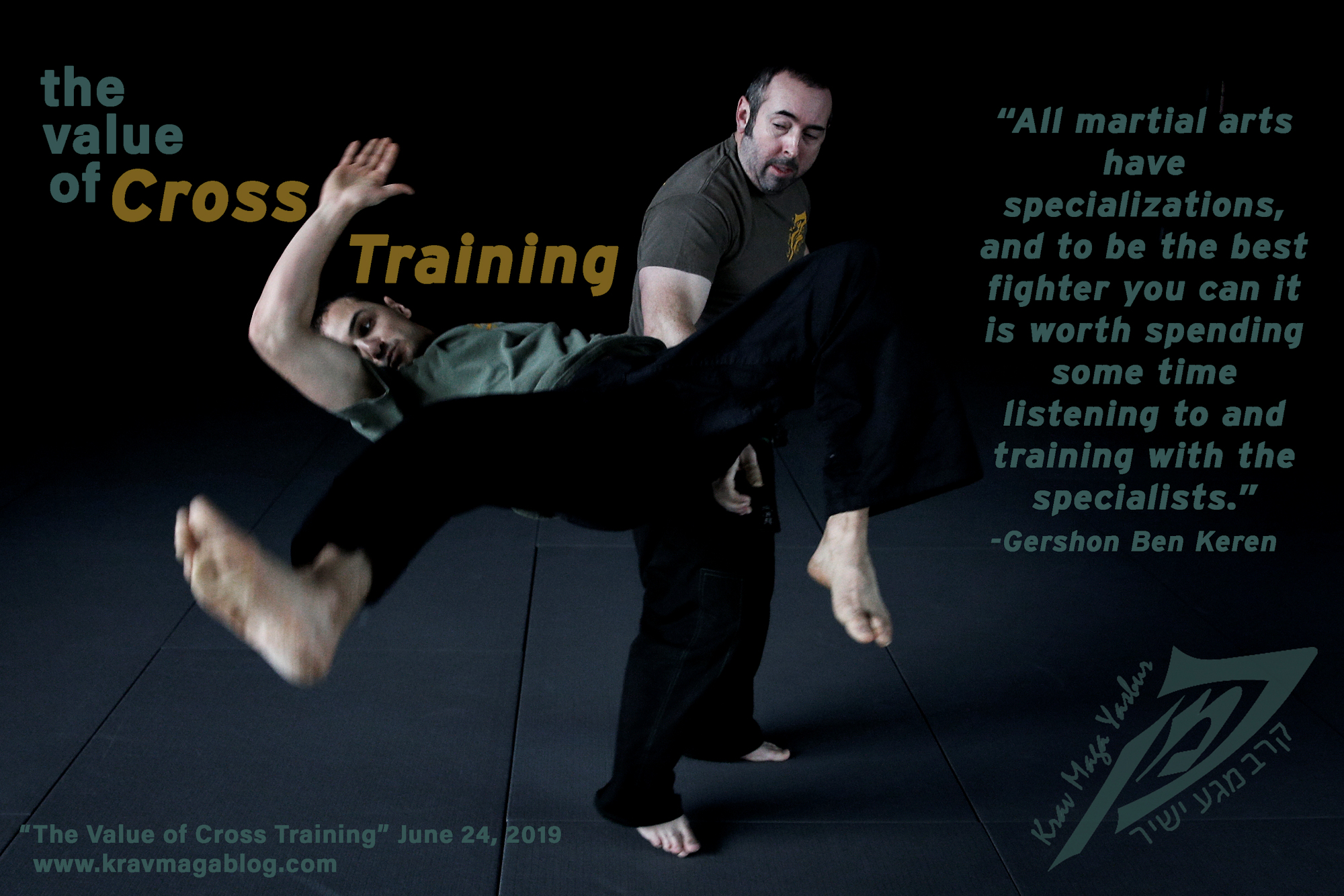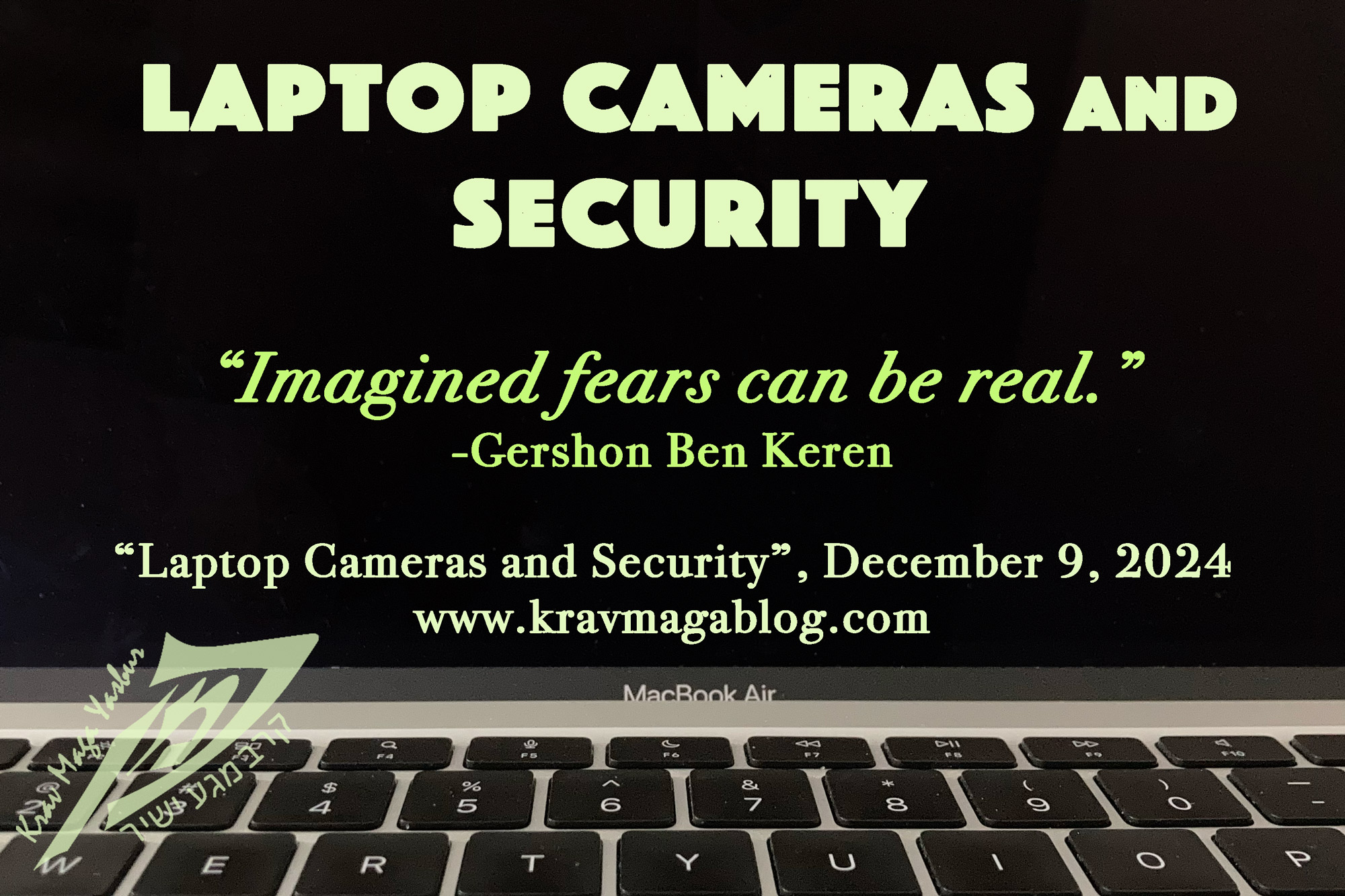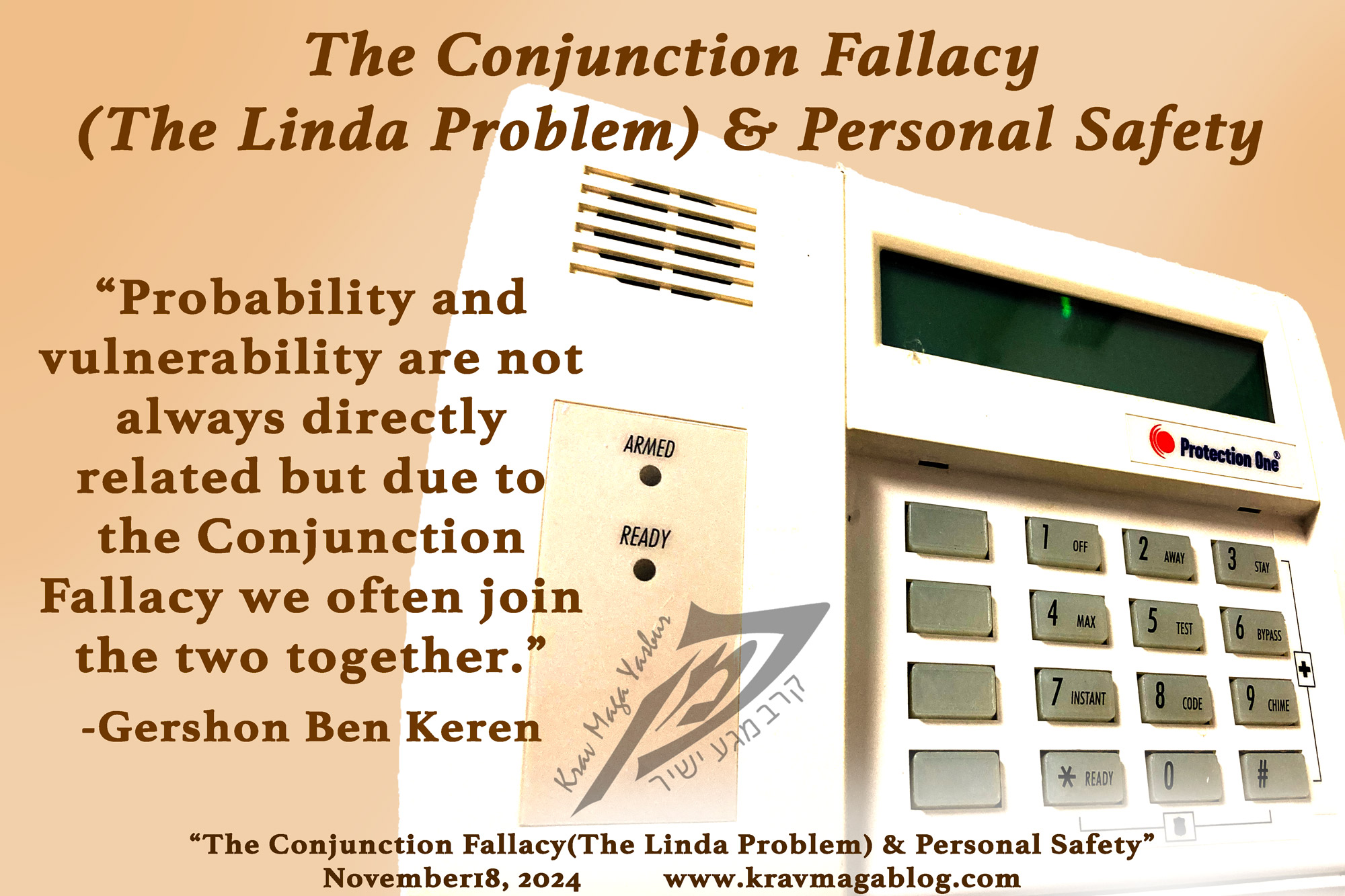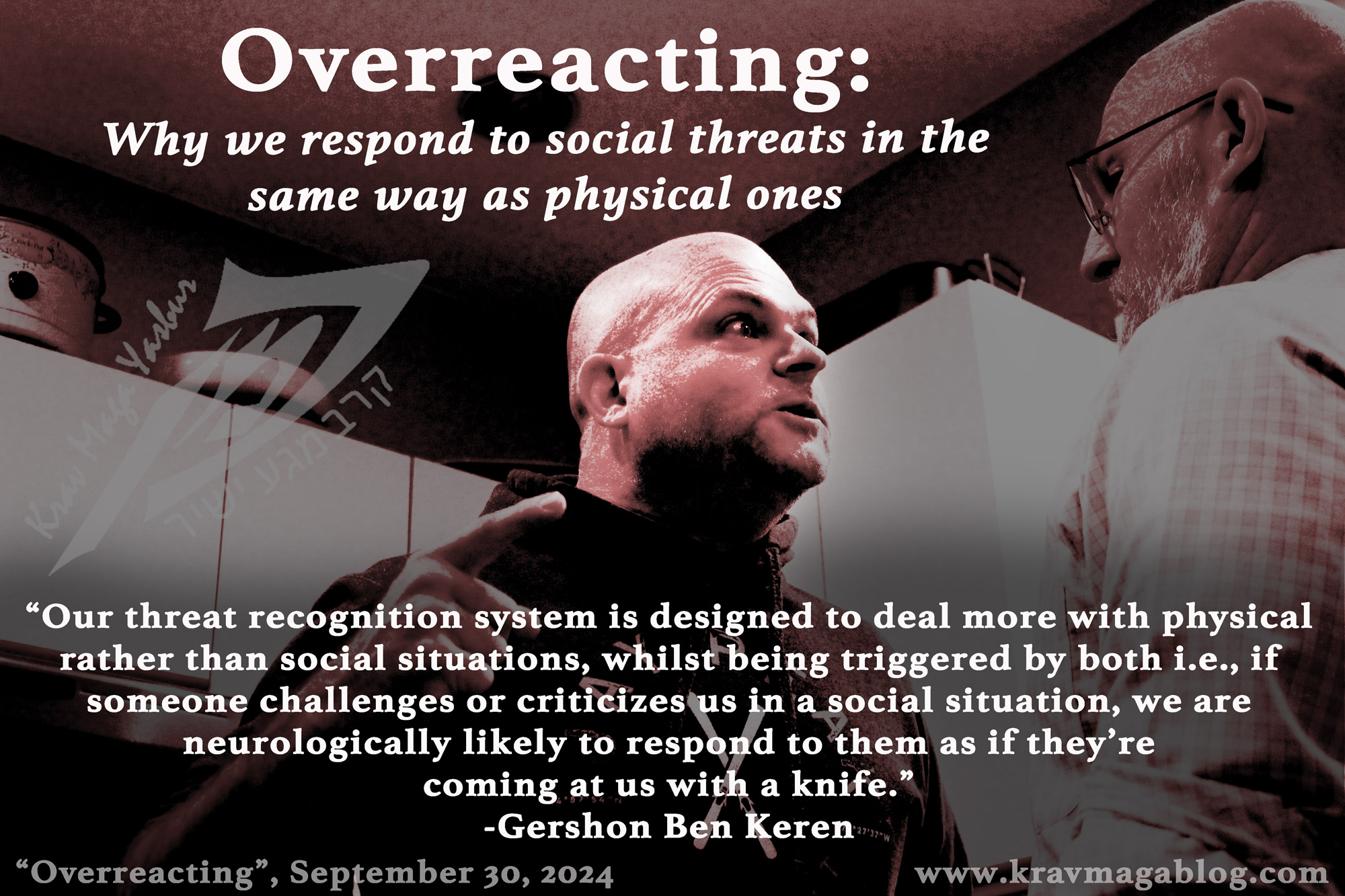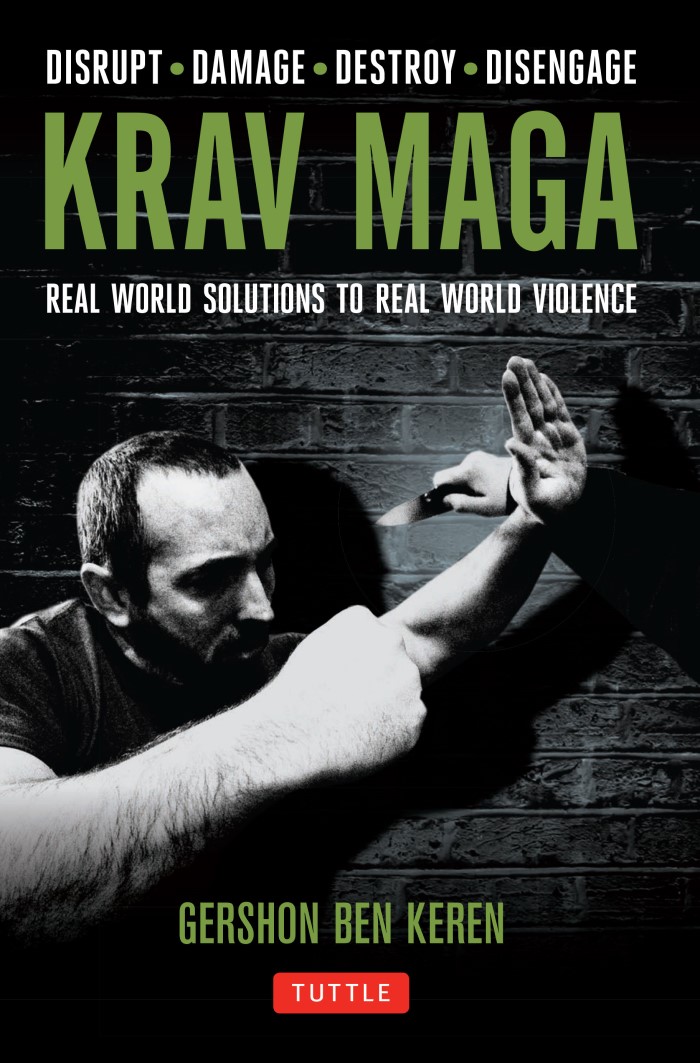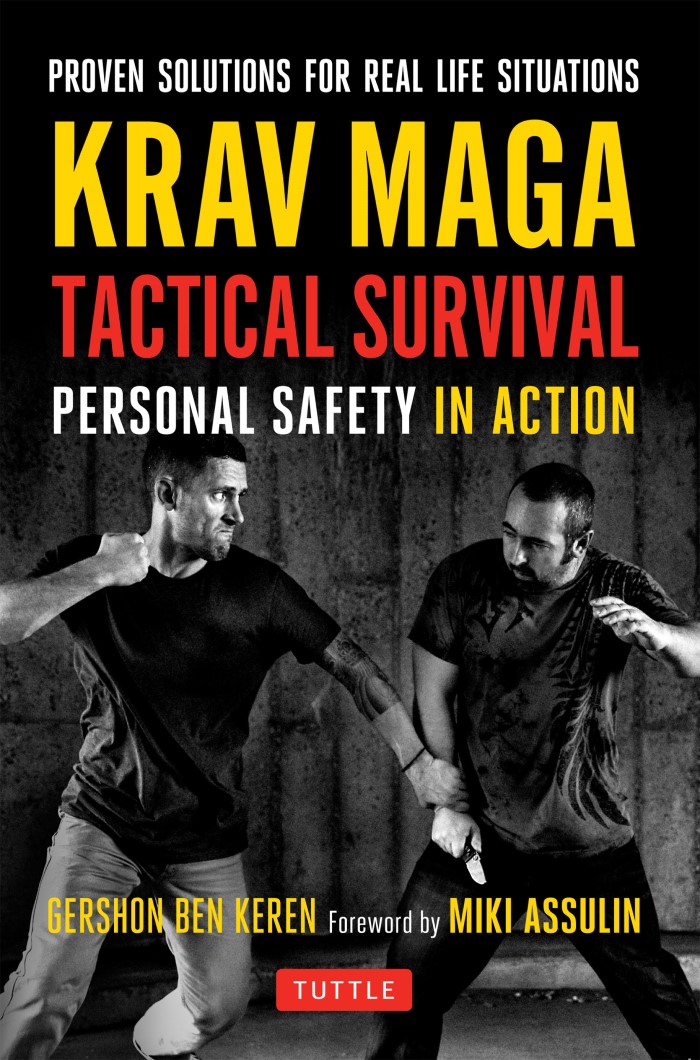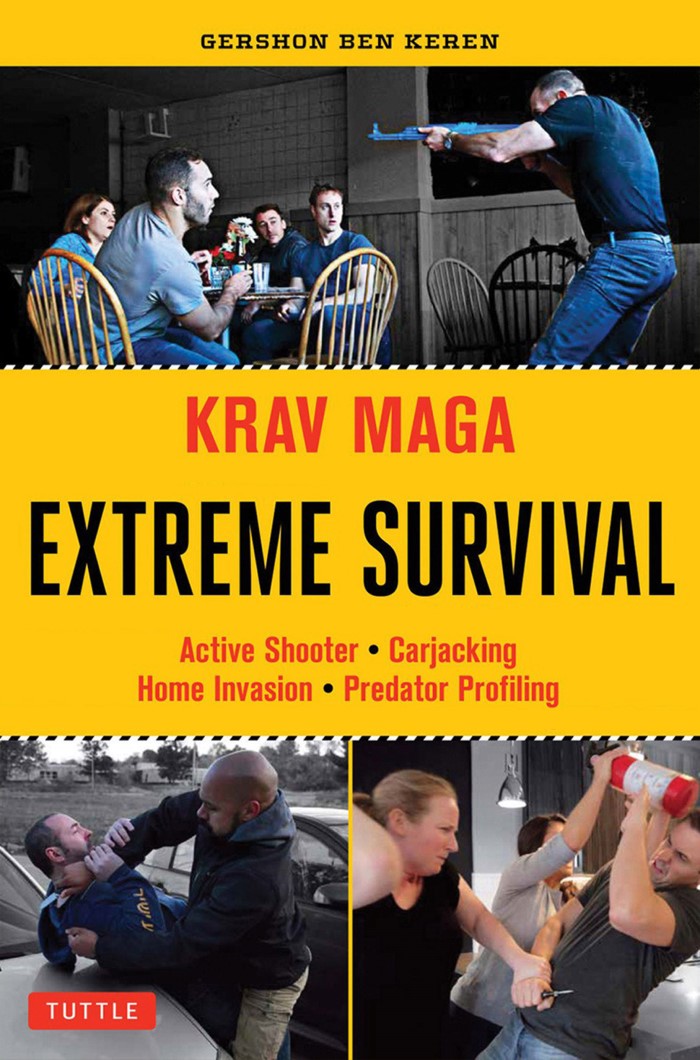Peripheral Doubts, is an article written by Gershon Ben Keren, a 5th Degree Black Belt in Krav Maga, who teaches Krav Maga in Boston, MA. He has also authored three Amazon best-Selling Books on Krav Maga.
To survive an assault you need three things: physical fitness, simple techniques and an aggressive/focused mindset. If I had to choose to stress the importance of just one of these I would choose the “mindset” piece. It is a strange irony of our training that on the mats 90% of our focus is on the physical component with only 10% of our attention being drawn to the mental aspect; on the street/in reality you need to switch this and understand that it is your “mindset” which is the major determining factor concerning your survival and it is a much, much more important piece than the physical aspects of your game.
The greatest enemy of a determined and aggressive mindset is peripheral doubt. Peripheral doubts are the thoughts that invade your mind as you attempt to do something. They are the doubts that cause you to hesitate and where survival is concerned hesitation equals failure. I believe there are basically two types of doubt: those that question the training you’ve received and those that question your ability to perform a particular action and/or technique.
We are fortunate that our system and training’s pedigree is not in question. Those who came to Israel with me were fortunate enough to train with the two head “Krav Maga” trainers of the MOSSAD – Israel’s premier special operations agency. For those of you who were unable to come to Israel with me on that particular occasion it is worth talking to those who did. Our techniques and training comes from the collective experiences of the IDF (Israeli Defense Forces), which allows us to have confidence in what we are practicing on the mats – I always enjoy taking people to Israel to train as they see that what we practice in our school is what is practiced there. When David Kahn comes to teach, you will see that there are much more similarities between our systems, than differences (David is the US Representative for the IKMA – Israeli Krav Maga Association – which is the first/original civilian association). Despite having been an instructor and black belt with several different associations, I have always taught/studied Krav Maga and taken comfort/confidence in the common methodology the various styles share.
The second type of peripheral doubt is the one concerning our own ability(s) to perform a particular technique, response or action. This is where I see Krav Maga as being “uniquely” clever in the way it reuses techniques; the 360 blocking system being the most obvious example. The fact that we can block knife and punch using the same system means we can eradicate/limit the decision making process. It is only when we involve a conscious thought process to “select” an appropriate technique do we introduce the possibility of “doubt”. Using a blocking system that is a) instinctual and b) universal (it can deal with both unarmed and armed/bladed assaults) the decision piece is effectively removed. When an assailant attempts to deny you time and distance, taking away the decision making process becomes a necessity. Krav Maga is more than an encyclopedic collection of techniques, it is an approach based on concepts – all of which have been tested collectively.
Yesterday I met with an ex-Spetsnaz operative (Russian Special Forces), who has a training facility in Winchester – which I will try and arrange for us to go and train at, in the coming weeks. Amongst other things that we discussed, including using condoms as improvised weapons, we got to talking about knife. Although we both dealt with bladed attacks differently, the concepts and ideas behind our different techniques were identical e.g. hand defense and body defense etc. The fact that another military with hands-on experience had recognized and understood the problem/issues with knives and developed surprisingly similar responses to the Israeli’s only goes to confirm my belief in what we do and prevent any potential peripheral doubts from entering my thought process.
When you step out on to the mats to train, you should be confident in both your own ability to perform what we do and the process, which has lead to the development of the techniques you practice. When you practice with a partner be sure not to over-correct but to make sure they see the “successes” of what they are doing. Help them to succeed and avoid being overly critical and even worse being negative. Training has to balance being positive/enjoyable whilst at the same time being effective and realistic. We are not in the business of building a false sense of security but of developing a personal confidence in our ability to perform that which we know we can have confidence in.
0 COMMENTS
